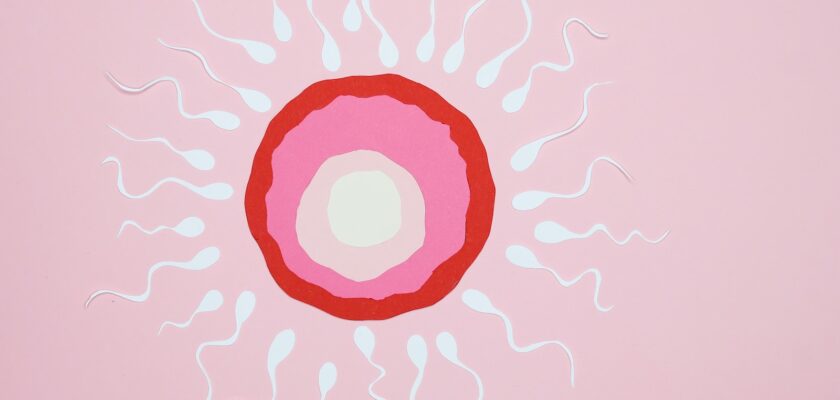After hormone treatment has stimulated the ovaries to produce eggs, they must be retrieved. This procedure is done while you are under sedation, using ultrasound to locate the follicles and a needle guided into each one.
You may be told to refrain from sexual activity during this time because it is believed that introducing semen would interfere with implantation and possibly harm the embryos. However, this is not entirely true.
During the Ovarian Stimulation
In an IVF cycle, we use carefully regulated hormone doses, administered by injection, to stimulate your ovaries. Physicians monitor follicular development using ultrasound scans and blood tests, and when a mature follicle has formed, they will retrieve as many eggs as possible. This is done under conscious sedation or light anesthesia.
As the ovaries grow larger due to the medications, they are at risk of being twisted, which is a medical emergency called ovarian torsion. Patients should limit exercise and avoid intercourse to prevent this from occurring. They should also refrain from activities that involve bouncing or jumping, such as running or mountain biking.
Mood swings are common during this time because of the hormonal changes in the body, and they may be difficult to separate from the stress of the fertility treatment itself. Breast pain and tenderness is also common. This is due to the medications, and can be eased by wearing loose clothing and taking OTC painkillers.
In rare cases, overstimulation of the ovaries can lead to a condition called ovarian hyperstimulation syndrome (OHSS). This is an exaggerated response to the injectable medications used in the treatment, and causes the ovaries to swell and become painful. The condition is treated with a hormone called human chorionic gonadotropin, or hCG, which triggers the ovulation of the mature follicle.
Before the Procedure
Many egg donor patients are advised to abstain from sexual intercourse throughout their entire donor cycle, including the time leading up to egg retrieval. The reason for this is that it can increase the risk of pregnancy, ovarian torsion and STIs. This is why both SIMPLIFY and our partner clinic PNWF recommend that women who wish to donate eggs do not have any sexual activity until after their first period following the procedure.
As part of the ovarian stimulation process, women are given hormones to stimulate the development of multiple follicles. However, this can cause a condition called ovarian hyperstimulation syndrome (OHSS). OHSS is characterized by over-stimulated ovaries that swell and lead to pain, bloating, nausea, fatigue, heavy menstrual bleeding and weight gain. If untreated, OHSS can lead to serious complications such as blood clots, kidney failure and ruptured ovarian cysts.
The egg retrieval procedure, also known as follicular puncture or oocyte retrieval, is a relatively quick and simple surgical operation. It involves a doctor inserting a needle into each of the follicles that contain an egg using ultrasound guidance. The needle is then drained of eggs and follicular fluid with the help of a vacuum.
To minimize the risk of complications, it’s important that women avoid heavy exercise and abstain from intercourse until after the egg transfer. It’s also recommended that women shave their pubic hair before the oocyte retrieval to reduce the risk of infection.
During the Procedure
In order for your doctor to get the follicles to grow into mature eggs, they have to inject you with hormone medications that stimulate ovulation. These hormones cause a spike in LH (luteinizing hormone) and a thickening of the uterus lining. They will also monitor your ovaries via ultrasound. During this time, it is important to follow the medication schedule exactly to maximize your chances of success.
The egg retrieval procedure itself is performed under light sedation and uses a needle guided by ultrasound to minimize complications like damage to the bowel, bladder or major blood vessels. It can be uncomfortable and a bit painful, but it is a safe procedure. Your doctor can also use a mild narcotic to reduce pain and discomfort after the procedure.
Once the eggs are retrieved, they must be fertilized with washed sperm through either IVF or ICSI. Many clinics recommend that you abstain from sexual activity during this period as well. This is because it is believed that orgasms can affect the implantation of the embryo, and it might harm the result. This isn’t necessarily true, though. Providing that you don’t have an orgasm right before the embryo transfer, sex should be fine as long as you don’t overdo it. Also, you should avoid sex during the two-week wait after the embryo transfer.
After the Procedure
Many people have a lot of questions about what happens during an egg donation cycle. The ovarian stimulation procedure involves injecting hormones to increase the number of eggs that develop in your ovaries. This is necessary because you cannot conceive a baby without ovulation.
During the ovarian stimulation process, you may experience some pelvic discomfort from the injections. However, these symptoms should disappear within a few days. You should not engage in sexual activity for at least two weeks following an egg retrieval to ensure that your ovaries can heal.
Before the egg retrieval procedure, you will be given sedatives and intravenous medications to prevent pain during the operation. During the egg retrieval, you will have a small needle inserted through your vagina under ultrasound guidance. The doctor will then extract several eggs from your ovaries, and you will have some mild spotting after this.
After egg retrieval, the eggs are fertilized with washed sperm using assisted reproductive techniques, such as IVF or ICSI. The fertilized eggs are implanted in the uterus where they will become a pregnancy.
If you get pregnant during an egg donation cycle, you should avoid sex because it can lead to a miscarriage. In addition, sex can cause the ovaries to overstimulate. Overstimulation can lead to ovarian hyperstimulation syndrome, which is a severe condition that includes swelling of the ovaries, abdominal pain, weight gain and other symptoms.

